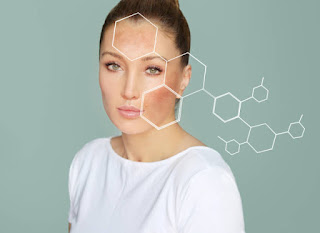Unlock the Secrets to Healthy, Radiant Hair: A Comprehensive Guide to Nutritional Hair Care
Maintaining healthy hair requires a combination of proper nutrition, good hair care practices, and lifestyle choices. Vitamins and minerals play a crucial role in promoting healthy hair growth and preventing hair problems. Here are some ideas for promoting healthy hair with vitamins:
Balanced Diet:
A well-balanced diet rich in essential nutrients is fundamental for healthy hair. Incorporate a variety of foods, including fruits, vegetables, lean proteins, whole grains, and healthy fats.
Vitamin A:
Vitamin A helps produce sebum, which moisturizes the scalp and keeps hair healthy. Foods like sweet potatoes, carrots, spinach, and kale are rich in vitamin A.
Biotin (Vitamin B7):
Biotin is known to strengthen hair and nails. You can find biotin in eggs, nuts, seeds, and leafy greens.
Vitamin C:
Vitamin C aids in collagen production, which is essential for hair growth. Citrus fruits, strawberries, and bell peppers are good sources of vitamin C.
Vitamin E:
Vitamin E improves blood circulation to the scalp, promoting hair growth. Nuts, seeds, and green leafy vegetables are rich in vitamin E.
Vitamin D:
Adequate vitamin D levels are linked to hair health. Get some sunlight exposure and consume foods like fatty fish, fortified cereals, and dairy products.
Iron:
Iron deficiency can lead to hair loss. Incorporate iron-rich foods like lean meats, beans, lentils, and spinach into your diet.
Omega-3 Fatty Acids:
Omega-3s nourish the hair follicles and promote hair growth. Include sources like fatty fish (salmon, mackerel), flaxseeds, and walnuts in your diet.
Zinc:
Zinc helps maintain the health of hair follicles. Oysters, nuts, and whole grains are good sources of zinc.
Protein:
Hair is primarily made of protein. Ensure you have an adequate intake of lean meats, poultry, fish, beans, and dairy products.
Collagen Supplements:
Collagen supplements can help improve hair strength and thickness.
Multivitamin Supplements:
If you struggle to get all the necessary vitamins and minerals from your diet, consider a multivitamin supplement that is tailored to promote hair health. Consult a healthcare professional before starting any supplements.
Hydration:
Staying well-hydrated is essential for overall health, including the health of your hair.
Limit Stress:
Chronic stress can contribute to hair problems. Practice stress-reduction techniques like meditation, yoga, or deep breathing exercises.
Gentle Hair Care:
Avoid excessive heat styling, harsh chemicals, and tight hairstyles that can damage your hair. Use a mild, sulfate-free shampoo and conditioner.
Regular Trimming:
Regularly trim your hair to remove split ends and promote healthier growth.
Protect Your Hair:
Use UV protection for your hair when spending time in the sun, and protect your hair from chlorine and saltwater when swimming.
Sleep Well:
A good night's sleep is crucial for overall health, including hair health.
Remember that it may take some time to see results from dietary changes and vitamin supplementation, as hair growth is a slow process. If you have concerns about hair loss or specific hair problems, it's advisable to consult a healthcare professional or a dermatologist for personalized advice and potential treatments.




Comments
Post a Comment